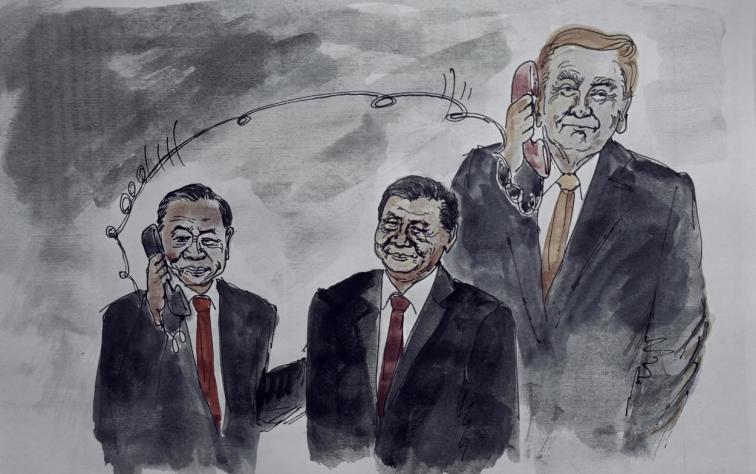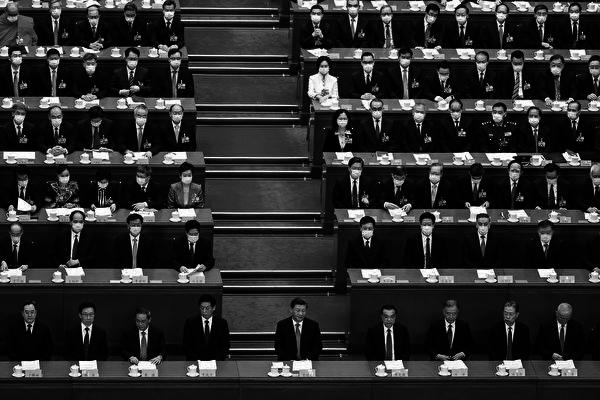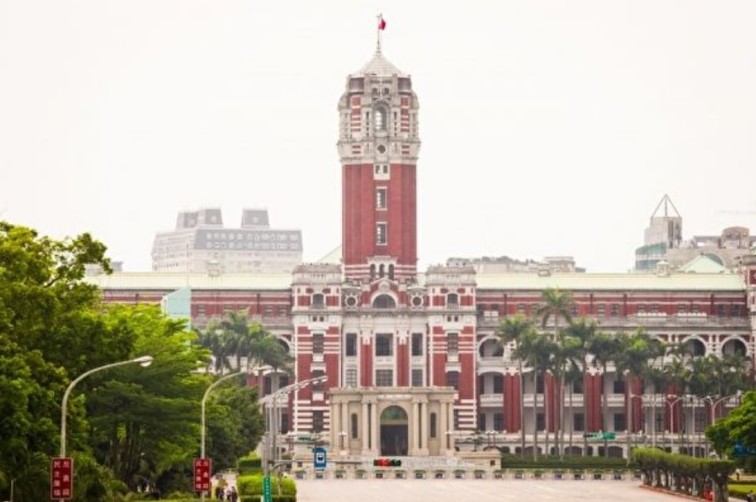On August 5, 2016, a security guard stands outside a restricted compound in Beidaihe, Qinhuangdao, Hebei Province, China. Chinese leaders gather in this coastal city for annual closed-door meetings. (Simon Song/South China Morning Post via Getty Images)
[People News] On August 8, multiple YouTube channels and X (Twitter) accounts revealed explosive news: Liu Jianchao, head of the CCP Central Committee’s International Liaison Department, had been taken away for investigation. Among them, well-known lawyer and veteran online whistleblower Zhou Xiaoyun stated: “Multiple sources have confirmed — including ‘sources from the sea’ — that Comrade Liu was taken away by relevant authorities the day before yesterday.”
Multiple Sources Claim Liu Jianchao Was Arrested, No Official Announcement
Independent commentator Yue Ge posted on X: “Two information sources say: Liu Jianchao, Minister of the CCP International Liaison Department, has been taken away by the CCP for investigation; sources believe this means Liu has fallen; the specific reason for his detention is not yet clear.”
In addition, several programs on Mingjing (Mirror Media) — part of the CCP’s overseas propaganda apparatus — also reported that Liu had been taken away for investigation.
Currently, with senior leaders and party elders gathered for the Beidaihe meeting, information about high-level CCP political struggles, personnel arrangements, and the agenda for the upcoming Fourth Plenum is drawing intense attention. At such a politically sensitive moment, reports that Liu Jianchao has fallen from power are nothing short of a bombshell. They suggest that the Beidaihe meeting is far from calm, and that the great political drama over whether Xi Jinping’s hold on power remains secure — and whether he will stay or go at the Fourth Plenum — is being played out fiercely.
According to the CCP International Liaison Department’s website, Liu’s diplomatic schedule was unusually busy in the final days of July. On July 28 alone, he met with leaders of 14 foreign political parties and delivered major speeches at foreign affairs events. On July 29, he met with the General Secretary of Algeria’s National Liberation Front, Abou El Fadhl Baadji. On July 30, he had three separate meetings with Algerian dignitaries and other foreign guests.
From July 31 to August 9, however, Liu made no public appearances. Whistleblowers say he was likely detained on August 7 and that his residence was searched. Late July coincided with the start of the Beidaihe meeting; about a week later, at the peak of the gathering, Liu was suddenly taken away — apparently during Zhongnanhai’s “empty nest” period, when many top leaders are away. This timing makes the internal-struggle fingerprints obvious. If his home was searched, one possibility is a corruption pretext — looking for cash or valuable bribes. If it is a political case, investigators could have been searching for case-related materials, intelligence, or criminal evidence.
Although there has been no official announcement of Liu’s downfall, the likelihood is high. In the cases of Qin Gang, Li Shangfu, Miao Hua, and He Weidong, the CCP was also evasive, only making announcements when the news could no longer be hidden. He Weidong, even now, has yet to be officially confirmed as purged.
Whose Man Is Liu Jianchao?
At present, outside observers generally believe Liu is a Xi Jinping loyalist.
Public records show Liu, age 61, is from Jilin Province. From 1986 to 1987, he studied international relations at Oxford University. He has served in various roles in the Ministry of Foreign Affairs: staff member in the Translation Office, attaché in the Information Department, third secretary, deputy division head, head of the Ministry’s Communist Youth League committee, first secretary at the Chinese Embassy in the UK, and counsellor in the Information Department.
In 2000, Liu unexpectedly left the diplomatic corps to serve as a Standing Committee member and deputy Party secretary of Xingcheng City, Liaoning Province. In 2001, he returned to the Foreign Ministry as deputy director-general and then director-general of the Information Department, and as Foreign Ministry spokesperson. In 2009, he replaced Song Tao as ambassador to the Philippines. In 2011, he replaced Zhang Qiyue as ambassador to Indonesia. In 2013, he became an assistant foreign minister. In 2015, he again became director-general of the Information Department, replacing Qin Gang.
In September 2015, Liu left the Foreign Ministry to head the International Cooperation Bureau of the Central Commission for Discipline Inspection (CCDI) and the Office of the National Anti-Corruption Coordination Group’s “Sky Net” fugitive recovery program — roles in which he pursued overseas corruption suspects, winning Xi’s favour. In April 2017, he became a Standing Committee member of Zhejiang Province and secretary of the provincial Discipline Inspection Commission — Zhejiang being the cradle of Xi’s “Zhijiang New Army.” In 2018, Liu returned to the Central Foreign Affairs Commission Office, later serving as its executive deputy director. He was once thought to be in line to replace Yang Jiechi as director. In June 2022, he became Minister of the International Liaison Department, and in October 2022, he was elected to the CCP Central Committee.
The International Liaison Department is, in essence, the Party’s “Foreign Ministry.” In Xi’s era, the Party controls everything — including diplomacy — making the ILD’s role crucial. It handles inter-party diplomacy and can even interfere in the Foreign Ministry’s work. Just as the Party treasury can spend state funds, the Finance Ministry cannot spend Party funds.
After taking over the ILD, Liu was highly active, rivalling Qin Gang in prominence. Since December 2022, he has met with ambassadors from dozens of countries, including Russia, Japan, Germany, Australia, France, Spain, the UK, the Philippines, Singapore, Egypt, and Italy. On April 18, 2023, U.S. Ambassador Nicholas Burns visited the ILD to meet Liu, touted in CCP propaganda as a “breakthrough” in China-U.S. ties.
In June 2023, after Qin Gang disappeared, Liu was used even more by Xi. By late 2023, rumours were rampant that Liu was the “foreign minister in waiting.” In January 2024, he visited the U.S. and met former Secretary of State Antony Blinken, widely seen as a signal of his impending promotion. The Wall Street Journal ran an article titled “Fox Hunt Enforcer Liu Jianchao May Become China’s Foreign Minister”, noting that Liu’s Party-system experience and political loyalty had earned him strong backing from senior diplomatic officials, and that Xi especially valued these traits amid a tightened security climate.
Liu’s diplomatic style is relatively mild, and speculation about his promotion was seen as an attempt by Xi to soften “wolf warrior” diplomacy. But in January 2024, during Liu’s U.S. visit, Council on Foreign Relations president Michael Froman quipped to him, “I might even say you’re a wolf in sheep’s clothing.” Laughter followed, and Liu chuckled in response.
Liu’s Fall May Signal Xi’s Waning Power
After Qin Gang’s removal, veteran “wolf warrior” Wang Yi returned as foreign minister. Liu did not take the post as expected — possibly due to intense factional infighting in the Foreign Ministry, jealousy over his diverse background, and resentment over his frequent transfers between the Foreign Ministry, local posts, and the CCDI. Another possibility is that his failure to win the post reflects Xi’s loss of political authority: Qin Gang, personally promoted by Xi, fell after just half a year, giving Party insiders an excuse to block another “fast-track” promotion for Liu.
Now, during the Beidaihe meeting — as the anti-Xi faction faces off with Xi — rumours of Liu’s sudden fall are not unfounded. This may represent the first crack in Xi’s hold over the Party-state system.
Recently, rumours of Xi having lost control over the military have gained further evidence. Japanese media reported that at the August 1 PLA Army Day evening gala, seven generals were absent, and fewer than a dozen active-duty generals attended — only about half the usual number. Notably, in the front row before the event, seated at a prominent round table, were Liu Yuan (son of Liu Shaoqi), Wang Guanzhong (former chief of staff to Hu Jintao’s Central Military Commission), and Cai Yingting (former deputy chief of the PLA General Staff) — an unusual signal pointing to major restructuring of the CCP’s military power hierarchy.
On August 4, a large-scale public protest erupted in Jiangyou, Sichuan, where demonstrators shouted “Down with the Communist Party” and “Down with Xi Jinping.” On August 7, a man in Kunming, Yunnan, stood in front of the Victory Hall of the War of Resistance, unfurling a white banner reading “Xi Jinping Step Down.” In just two months, the CCP will convene the Fourth Plenum. The military, officialdom, and public sentiment appear aligned — hoping for Xi’s departure. If Xi is removed, the days of the CCP’s tyranny may be numbered.
(First published by People News)











News magazine bootstrap themes!
I like this themes, fast loading and look profesional
Thank you Carlos!
You're welcome!
Please support me with give positive rating!
Yes Sure!